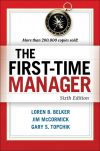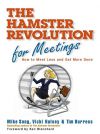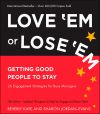Правообладателям!
Представленный фрагмент книги размещен по согласованию с распространителем легального контента ООО "ЛитРес" (не более 20% исходного текста). Если вы считаете, что размещение материала нарушает ваши или чьи-либо права, то сообщите нам об этом.Читателям!
Оплатили, но не знаете что делать дальше?
Текст бизнес-книги "Twenty-one Dog Years: Doing Time at Amazon.com"
Автор книги: Mike Daisey
Раздел: Жанр неизвестен
Текущая страница: 1 (всего у книги 2 страниц)
Twenty-One Dog Years
Doing Time @ Amazon.com
Mike Daisey

For Jean-Michele
Epigraphs
It is difficult not to marvel at the imagination which was implicit in this gargantuan insanity. If there must be madness something may be said for having it on a heroic scale.
–John Kenneth Galbraith, The Great Crash
It was one of those rare smiles with a quality of eternal reassurance in it, that you may come across four or five times in life. It faced—or seemed to face—the whole external world for an instant, and then concentrated on you with such an irresistible prejudice in your favor. It understood you just so far as you wanted to be understood, believed in you as you would like to believe in yourself and assured you that it had precisely the impression of you that, at your best, you hoped to convey. Precisely at that point it vanished.
–F. Scott Fitzgerald, The Great Gatsby
Contents
Cover
Title Page
Dedication
Epigraphs
1: Dilettante
2: Freak Parade
3: Doors for Desks
4: Geek Messiah
Subject: introductions
5: Our Physics
6: College Years
Subject: transformers, dreams
7: Gorillas vs. Bears
8: 1-Click™ Christmas
Subject: oompa-loompa
9: Mission Statements
10: Interviews
Subject:to tell you
11: Supervillain Lair
12: Pornsniffing
Subject: accident
13: Fiscal Wonderland
14: Exit Interview
Subject: au revoir
15: Museum of Ham
Subject: laugh with me
16: Field Trip
Acknowledgments
About the Author
Copyright
About the Publisher
1 Dilettante
When Amazon went to temping companies to recruit future employees, it gave a simple directive: send us your freaks. I know this is true because the people at the temping companies, not the sharpest knives in the drawer, would tell the people they were recruiting that this was the requirement. Not that it stopped me, no sir. I might not precisely regard myself as a professional freak, but as job descriptions go it falls well within my range.
I am a dilettante. I do many things, but none particularly well. It is the art of not applying yourself, the only craft I have studied my entire life. Like so many others of my generation, I cherish the delusion that I have superpowers buried deep inside me. They’re awaiting the perfect trigger—radiation, a child in danger—and in that defining moment I will finally know my birthright: mutant healing factor, terrifying strength, maybe kick-ass retractable admantium claws. In a good daydream, it’s all three.
When you know that you are destined for greatness by virtue of your mutant heritage it is difficult to apply yourself to normal life. Why waste the effort when you know that your potential is so tremendous? Better to wait. Better not to try, to save yourself for the Great Works to come. Nothing you do will ever be more than a footnote in light of your own unimaginable future, so save your breath and bide your time. Nurture your talent. Read a book. Play Nintendo.
It’s a depressing life. The word dilettante derives from the Italian dilettare, meaning to delight in. Well, no one buys that—not even the dilettantes. It’s a tough racket that favors the young: I was twenty-five and rapidly becoming the only practicing dilettante left from my college class. Being a dilettante is the opposite of having a viable career, and most people discover they don’t enjoy starving, so they find a life and quickly settle into their private hells by choice or inertia.
I do have an advantage in the dilettante market; I have a bachelor’s degree in aesthetics. No, really. At interviews it’s the first thing people ask about, and I can tell they want to laugh at me. I think they should—it would be a great release for everyone involved. I should have known something was wrong when the recruiting professional for Amazon said my degree was the reason she had called.
Majoring in aesthetics seemed like a good idea at the time—something that would free me up for the life of a wandering scholar without earthly ties, a book-oriented Caine from Kung Fu. You see, I’d grown up in far northern Maine, in the small town of Fort Kent, at the absolute end of U.S. Route 1. There’s actually a sign where the road ends, next to the bridge to Canada: HERE ENDS U.S. ROUTE 1, WHICH BEGINS IN KEY WEST, FLORIDA.
This pronouncement contradicted the idea we were fed in school that roads had no end. Its presence reinforced something that I had always known, even as a child. Growing up between the paper mill and the potato field, it was clear to me that there were places out of which you could not maneuver, places with ends so dead that they defied inhabitants to imagine another way of life. In my eyes that sign had always read: HERE IS THE END OF THE ROAD, AND HERE IS WHERE YOU MUST STAY.
Bragging about how “rural” your upbringing was is like comparing penises—someone else’s tin shack is always further up the mountain. But I usually win, owing to a unique topological irregularity: no matter where you are, Fort Kent is far, far away. These anecdotes sketch some of northern Maine’s character:
a) During winter, gasoline turns to jelly in your tank if you leave your car unheated overnight, so everyone puts a bare light bulb under the hood. My mother goes a step further and puts blankets on the hood, tucking the car in like a baby.
b) My sister and I would get very excited when the family drove to Presque Isle, a town about two hours south, because they had a traffic light. We would chant, “Traffic light traffic light traffic light!” This behavior persisted through adolescence.
c) I spent one half of my waking hours in the winter months (of which there were nine) cutting, lifting, stacking, and throwing wood. I was a dilettante even then: I was not good at cutting, lifting, stacking, or throwing, but I had a passing familiarity with all the wood-heating arts.
When I went off to my hoity-toity microivy college I discovered that all I wanted in life was to dissolve into a mist of intellectualism that would creep around the hills and vales of New England. I would be a professional letter writer. I would be a freelance intellectual. I would study Etruscan vases here, equestrian history there, and simply float about the academic world, never again settling in one place or doing anything real like holding a job or, God forbid, lifting another piece of wood.
By naming my course of independent study “aesthetics” I could take a lot of courses that intrigued me, like acting and writing, ignore the ones I felt would waste my time, and generally subvert the entire point of the well-rounded liberal arts education for which I had taken out huge student loans. Ah, youth! Was there nothing I could not accomplish? A young man escapes his fate in the bleak frozen wastes of Maine to become … I had no idea. All I felt was a vague sense of grand entitlement and a fervent desire never to work an honest day in my life.
In some ways it was the curse of talent; there was a whole list of things in which I showed great promise. But there is a hell of a gap between “talented” and “successful,” and to bridge it you need something called “will.” My teachers begged me to dedicate myself—just a little—and said I would really blossom. I dug in my heels and refused. I feigned scorn and indignation but really I was just too scared to apply myself. I was afraid I would discover my limitations. Better not to know. Better to be free and easy and cultivate an air of smug accomplishment. Nurture my talent. Read another book. Play some more Nintendo.
But I miscalculated. I failed to go to graduate school, and it is difficult to be a wandering scholar without scholarship. So I went to Seattle and became disaffected, instantly. It was automatic in the nineties—if you entered the Seattle city limits and were a white liberal arts graduate with an uncertain future, you automatically became shiftless, distrustful of authority, and disaffected.
We are talking about slackers, an unavoidable element in the cultural landscape of the nineties. Rather than work in fields that grant traditional rewards (money, homes, cars), slackers took up eclectic pursuits (horror-movie collecting, fan-website building, coffee drinking). A true slacker had so many part-time projects, half-baked ideas, and hazy social initiatives that he was too busy to work a forty-hour week. This was not pedestrian laziness or sloth: professional slacking was an art.
Really, though, it was a newer version of tuning in, turning on, and dropping out brought on by economic malaise and social boredom. Boomers ruled everything: they were our parents, our teachers, our landlords, and the gatekeepers to every social or business institution. They talked about Platoon, remembered how great and terrible the sixties were, and refused to yield even a sliver of influence—you could either be a preteen and get marketed to, or you could be thirtysomething. No wonder a popular response among my peers was to check out.
Seattle was ground zero for slackers. The swift rise and fall of the grunge movement brought a wave of glam and celebrity to an otherwise sleepy city, and even after Kurt Cobain blew his head off at the height of his career it was allowed to keep its indie cred. Seattle had always been a boomtown, from the gold rush to Nirvana—the only question was what the next big thing would be.
For now an aura of grunge persisted. The city bulged with rockabilly singers, nouveau artists, and, of course, slackers. Across America the word was out that Seattle was this cool place full of relaxed people who really “got it,” a great spot to be if you liked your arts intimate, your pace medium, didn’t mind gray skies, and weren’t concerned about getting ahead. It doesn’t take a rocket scientist to see how slacking would evolve into an art form there.
Something else was evolving in Seattle too—in a garage, the birthplace of every great and not-so-great grunge band. Amazon was building its first desks from doors.
So Amazon and I started in Seattle at about the same time.
I didn’t have the faintest idea what to do with my life, but no one else seemed to have a plan either, which was comforting. I chose to immerse myself in the scene, writing fitfully and acting in fringe theater. One night, I was standing onstage in an unheated garage performing Jean Genet’s The Balcony as the Bishop, wearing full Catholic regalia, a twelve-pound miter, and Greek cothurni, which are fifteen-inch platform heels. My giant robes were open and I was naked and about to masturbate while delivering a speech about sinning. I had expressed some reservations about this particular bit of business, but the director had told me that it would be “decadently fabulous,” and although I meant to refuse in shock and horror, I had somehow never gotten around to it.
Anyway, there I was, exposed, about to begin the speech, when a family walked in. Mother, father, two little girls—late arrivals. I’ll never know why they thought Genet would make a good family show. One of the little girls, not three feet from my naked Bishopness, stared wide-eyed with horror, but I honestly think I was more scared than she was. And it was at that very moment that I thought of Boylan, my fiction professor in school, telling me: “Daisey, you shouldn’t go to grad school yet. Get out in the real world. You need to do a real job or you’ll have nothing to work with.”
So I took a deep breath and did my real job.
Exposing myself to minors didn’t pay especially well, so I was making the rent by temping, a popular slacker occupation. It all runs together: Seattle, disaffected, temping, like a professional diagnosis, a syndrome. Doctor, Doctor, what’s wrong with him? Why is he so jaded, so cynical, and so goddamn poor? The doctor shines a light, cops a quick feel while making the subject cough, speaks into his microrecorder: Seattle. Disaffected. Temping. Treatment: regular doses of dogma to encourage development of a belief system. Subject is delaying adulthood and responsibility by pretending he is possessed by an unknowable destiny, chosen by fate, et cetera. Subject’s head is currently located very far inside subject’s ass.
I really enjoyed temping; it agreed with me. I was living in a room over a crack den for two hundred dollars a month, which meant I could afford to take months off between assignments and simply drift, directionless and guilt-free. I often had to step over the passed-out junkie who lived across the hall, but I was in love with the way I didn’t obey the corporate clock—at 10:00 A.M. on a Tuesday or 2:00 P.M. on a Thursday you would find me asleep. Sleep! Who knew I had been so starved for it? It was heaven.
The idea of being a permanent employee terrified and perplexed me—those who were looked uniformly unhappy and if you asked them, they would say that yes, indeed, they were miserable. It was hard to imagine how I could or would ever enter their world, even though more and more of my friends were emigrating to that great undiscovered country of medical insurance and 401 (k) plans.
Not so for me—I knew my place. I saw myself as a mercenary of the temping world. It was an ongoing fetish fantasy in which the good folks at Parker Staffing Services were sergeants, barking orders:
“Listen up, you weak-kneed vomit-licking dogs! Hamilton and Fitch needs a receptionist on the forty-second floor. It’s lawyers—it’ll be ugly. Who wants it?”
“Sir! I am trained for all reception duties, including simpering and fawning!”
“Daisey. Brave words. You want to live forever?”
“No, sir! I can also kill a man in three ways with a pencil, sir!”
“You like nine dollars an hour?”
“I like it fine, sir! Whatever it takes to serve those fucking lawyers, sir!”
“Goddamn right. Get on over there, Daisey. Move it!”
I loved the illusion of freedom: this job is terrible, but at least I don’t have to stay like the rest of these poor bastards. This is the linchpin on which temping turns, the idea that you are free to walk at any time. It is an illusion: I never left an assignment early, never really made use of the “flexibility” I had in my grasp. The temping companies encourage you to think of yourself as a “temporary staffing professional” and work at instilling pride and polish into their recruits. Before long you are loyal to the temping company and unwilling to end a contract early.
When Parker called me because I had the gall to request and then take two days off, I was told by my liaison: “At Parker we insist that temping be your first priority.”
“That’s odd.”
“Why?”
“Does anybody make temping their first priority? I mean, are you really flooded with folks who went to college dreaming of the day they would be temps, fiercely loyal to whatever employer wanted them on that one particular day?”
Silence.
“You know what I’m getting at, don’t you?”
Silence.
“I’m pretty certain you didn’t dream, all those years ago over the keg at Beta Phi Epsilon, that you would arrive at this lofty height, a placement officer discussing the ethics of temp work with an aesthetics major. We are not so different, you and I, are we?”
Silence.
“I guess this means that I can’t have this Friday off?”
“You can have every Friday off.”
“Oh? Oh. I see.”
After being expelled from my agency I became very apathetic about the temping industry. I was indignant that I had been let go so abruptly; I felt betrayed, after the years I had spent in loyalish service. I found myself thinking, What do they think I am, their slave? That the question was rhetorical hadn’t dawned on me. Only teenagers, dogs, and dilettantes are capable of this flavor of thinking.
It was summer and so I whiled away the time in a variety of exciting action poses: reading, sleeping, watching television, and a variant form of the reading pose that incorporated eating. My girlfriend and I became obsessed with The Newlywed Game, hosted by the creepy Bob Eubanks. A trained viewer can predict which couple will win within minutes of the show’s opening—the couple with the largest smiles who strike each other while still smiling always wins, just like in real life. We played Super Mario Kart obsessively. We bought a Rocket Chef after the television told us to do that—it was always telling us to do all sorts of things in those days.
I was feeling very Zen and willing to listen to the advice of inanimate objects because I wanted nothing—I was in love. Jean-Michele had just become my live-in girlfriend, and it was the first time I had ever moved in with someone. I left my artistically hip neighborhood for a much more sedate burb that cost a lot more than the crack den, but I didn’t care. We were delirious in love—we spent all day having sex and fighting, both at the same time when we could manage it.
Cross Anaïs Nin with Encyclopedia Brown and you get Jean-Michele—sensual, funny, and possessed by the dark, passionate practicality of the Polish. I learned about Poland quickly: the first time I met her family we sat in the garden drinking and getting to know one another, two activities that are indistinguishable and interchangeable to the Poles.
We were all drunk and laughing when Babcia came up from downstairs. Babcia is Polish for grandmother but with Babcia it had become a capital B: she was the Babcia of Babcias, the woman about whom I had heard a hundred stories, who had delivered her family from the horrors of the Nazi occupation and to America.
Jean-Michele loves her more than life itself, and meeting her for the first time I was amazed at how tiny she was: I was certain I could fit this matriarch inside of my thigh, that I could have smuggled her over the East German border if necessary. Later I would learn that she was also capable of feeding a person so insistently that they could actually die of a creaminduced embolism right at the kitchen table.
My first glimpse of Babcia was not over a bowl of borscht—she had come outside to find out why we were laughing and shouting at the tops of our lungs. Her eyes were bright and disapproving as she surveyed all of us committing the cardinal sin of drinking in the garden. Think of the neighbors! and Be quiet and careful! were artfully knitted into the shawls she gave away at Christmas. Babcia remains the only woman I have ever met who can actually make guilt shimmer like heat waves in summer.
Maybe she was equally unhappy with all of us, but her gaze settled on me—I had obviously brought this laughing into the house. I saw how clearly I was read, judged, and found unworthy. She knew what I did for a living (nothing) and my ambitions (AWOL). Under duress I would have admitted to being a slacker, but beneath her withering gaze I felt I had earned a more emasculating title: bum. Man without job. Dead weight.
She stood for a minute until everyone else noticed her, and when she had the attention of everyone she said in a clear voice: “You’re all laughing now, but you’ll be crying later.” Then she walked back inside the house without another word.
Later that night I stared at the ceiling with Jean-Michele curled beside me, and for the first time I knew with certainty that these days weren’t going to last. I had no idea what Babcia had meant with her factually accurate, yet depressingly Polish pronouncement. Her melodrama had struck a nerve. Mystical Nazi-escaping grandmothers are not to be trifled with.
The lazy indulgences would have to go. I wasn’t playing “find yourself” as my parents had, or fighting a war, or even learning tai chi. I needed to pull my own weight, get things moving, and acquire some direction. So I would find a job. Not more temping, a Real Job™. In the morning, first thing.
I did nothing the next day. Or the next. Rinse, repeat. Every night in bed I would tally the reasons I had to work, think of how we could not afford to live like this, watching the bank account dip and dry up. Rinse, repeat. You can lead a horse to water but that doesn’t mean he’ll go to the office. Rinse, repeat.
My perversity saved me—more specifically my obsession with tooth decay. There was little wrong with my teeth, but I reasoned it was only a matter of time. One of my foremost neuroses is the condition of my teeth. They have tiny cavities, and I’m always afraid that these tiny cavities will become Huge Cavities, which will in turn offer easy access to a Tooth Infection, which will expand into a Gum Infection and then a Jaw Infection, which will finally climb up into my head and become a Brain Infection. Then my brain will swell up inside my skull and I will die, a condition I saw once on St. Elsewhere.
I knew that this was both true and possible because my mother, bless her black heart, had sent me a newspaper article on the phenomenon, which I read and then attached to the fridge with magnets. Once it’s on the fridge it is more real than real: it is fact.
This meant that it was time to get real health insurance, and real health insurance meant getting a Real Job™. Jean-Michele liked the idea. She thought employment would make me more attractive—not only to Babcia but to her. It was like a wake-up call from God. Faced with the prospect of losing my girlfriend and dying like a toothless bear of some third world-style gum infection, I was now on a serious job hunt.
My first call was prompted by an ad in the Seattle Weekly under the nondescript heading: CUSTOMER SERVICE TIER 1: LAME TITLE—COOL JOB. The rest of the ad mentioned good pay, flexible hours, and a “hip and quirky work environment.” I faxed them my SAT scores and my transcripts, which was odd for an office job—no one had ever cared about my academic background before. I was thrilled when they called me five minutes later.
When I needed a Real Job™, there, like my white knight, was Amazon.com.
Правообладателям!
Представленный фрагмент книги размещен по согласованию с распространителем легального контента ООО "ЛитРес" (не более 20% исходного текста). Если вы считаете, что размещение материала нарушает ваши или чьи-либо права, то сообщите нам об этом.Читателям!
Оплатили, но не знаете что делать дальше?







